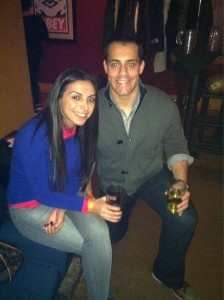Profiles in PR | Linsey Godbey
January 17, 2013
Your Name: Linsey Godbey
Your Position: Director of Marketing
Your Business: e+CancerCare
Company Website: epluscancercare.com
Twitter handle: @Linsey_june (personal)
Services You Offer:
Working in partnership with physicians and hospitals, e+CancerCare operates a growing network of outpatient cancer care centers in markets across the country. Personally, I’m responsible for planning, development and implementation of all marketing strategies, marketing communications, and public relations activities, both internal and external.
Your Niche Area of Expertise:
Communications Strategy, Branding Development, Public Relations, Jokes (self-proclaimed)
How Did You Get Started in This Business?
After a brief stint as a pre-med student at West Virginia University, I quickly found a new home in the Journalism School, which was a much more natural fit. I moved to Washington, D.C., right out of college and landed a job as an executive assistant at GolinHarris, a global PR firm. Fast forward down the road four years, and I’m working as a senior account executive on the McDonald’s account. My next stop was the United States Senate, where I worked as a deputy press secretary for Senator Jay Rockefeller (D-W.Va.) for two and a half years. The assorted mix of skills and proficiencies I had to use during those two positions gave me a great communications/marketing/PR foundation – and I’m still learning more every day!




